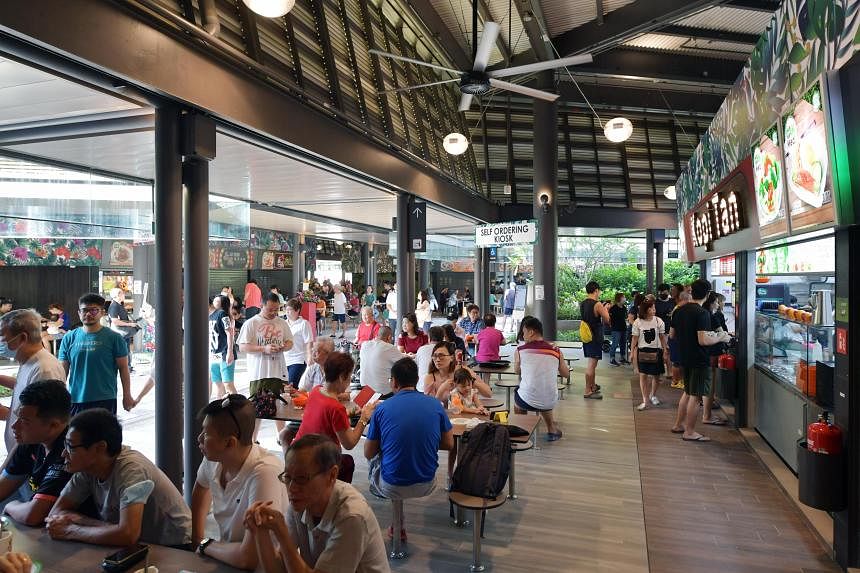
Ms Jaslynn Phua, 42, whose family runs an Eng Kee Chicken Wings outlet at Buangkok Hawker Centre, says: “We have a group chat with the Fei Siong management, which allows them to provide immediate support. If we see any spillage or are running short on utensils, we just update them via the chat and they are replenished within minutes.”
Mr James Tan, 44, owner of Flying Dragon Noodles, which sells crispy egg noodles doused in gravy, has also had a good experience with FairPrice Group Hawker Centre. “They don’t fine us unnecessarily, and mostly leave us alone,” he says.
ST asked NEA to what extent SEHC contracts are standardised and how much oversight NEA exercises over such hawker centres, to which the agency replied that operators have the discretion to vary rent according to the type of food sold.
When asked whether it is possible for tenants to negotiate for more favourable terms, lawyer Ronald Wong, deputy managing director of Covenant Chambers, says that depends on who has more bargaining power.
In a country where space is scarce and demand for stalls fiercer than ever, the tenant rarely comes out on top, he observes.
“It also depends on whether the tenant has any presence of mind to negotiate or get advice. Terms are sometimes drafted in a way that is not always easily comprehensible by most people, especially those who don’t speak English as a first language,” he adds.
Preserving hawkers’ interests
But as evinced by repeated complaints to their respective operators and e-mail to MPs, these hawkers are certainly not voiceless. But how to speak change into existence?
Mr Seetoh, who raised the issue of punitive contracts in a blog post on his Makansutra website in early May, says ad-hoc activists like himself are not enough to represent the interests of hawkers. A dedicated association is needed to champion their cause across all operating models and advise stallholders.
“This association should consist of people who have experience in operations, experienced hawkers, suppliers, trainers from culinary schools, lawyers and financial advisers. Most hawkers are struggling to even make a living every day and have no time to think about these things. This association can be their voice,” he says.
Academics also stress the importance of preserving these “community dining rooms” and the cooks who continually pump life into them.
Dr Keri Matwick, senior lecturer at NTU’s School of Humanities, who studies food media discourse, says that affordable hawker meals act as an important alternative to handouts from food charities.
“There’s no social stigma to eating at a hawker centre because it does still have this national and global acclaim of having good food. So it provides a dignified way for everyone to eat, regardless of class.”
They also serve an invaluable social function, adds Dr Ye. “These hawker centres are where people from different linguistic, religious, ethnic and class backgrounds interact. It is where many of us learn to engage with one another.”
For this to continue, she emphasises that Singapore must find practical ways to balance the various pressures on those in the trade. Otherwise, future generations might see fewer stepping into the hawker trade.
